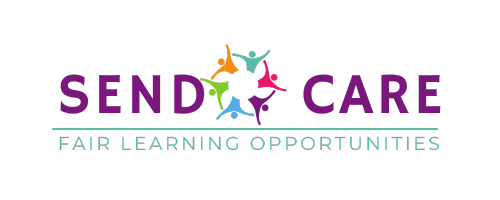- info@sendcare.uk
- 07886147362
Understanding Dyslexia: Myths, Challenges, and Strengths
Dyslexia is often misunderstood as simply a difficulty with reading or writing, but it is a complex, language-based learning difference that affects how individuals process written and spoken language. Despite common misconceptions, dyslexia is not a reflection of intelligence; many people with dyslexia are highly creative and capable.
One persistent myth about dyslexia is that it involves reversing letters, such as confusing “b” and “d.” While this can happen, dyslexia goes beyond this simplistic view. It affects phonological processing, making it harder to connect sounds with letters or recognise words quickly. Another misconception is that individuals with dyslexia are lazy or unmotivated. In reality, they often work much harder to keep up with peers.
Challenges of Dyslexia
The challenges associated with dyslexia can be significant. Difficulty in reading and writing can impact academic performance and lead to frustration or low self-esteem. These struggles can persist into adulthood, affecting workplace tasks like writing reports or following written instructions. However, with the right support, individuals with dyslexia can overcome many of these hurdles.


Strengths of Dyslexia
Dyslexia also brings unique strengths. Many people with dyslexia excel in creative fields, problem-solving, and thinking outside the box. Their ability to see the “big picture” and approach challenges from innovative angles is often a valuable asset in careers such as design, entrepreneurship, and engineering.

How to Support Someone with Dyslexia
How Sendcare Can Help
Supporting someone with dyslexia involves understanding their needs and providing tools to aid their learning. Assistive technologies, such as text-to-speech software, can make reading more accessible. Structured, multi-sensory learning methods and a focus on strengths rather than deficits can also help individuals thrive.
If you have dyslexia, or a loved one who has been recently diagnosed, it can be difficult to know where to turn for support. At Sendcare, we believe one of the most effective methods of help is through shared experiences from someone who has already been there. We offer accurate information and guidance on what to expect and where to go for further assistance, ensuring you feel supported every step of the way.
By embracing a better understanding of dyslexia, we can create more inclusive schools, workplaces, and communities that celebrate neurodiversity.
2 Comments
-
Jack Johnson says:
Fusce urna augue, volutpat quis pharetra nec, fringilla a enim. Etiam dapibus accumsan libero vehicula vestibulum. Nunc justo augue, vehicula vel mauris id, blandit laoreet urna. Integer placerat euismod lorem vitae viverra. Sed cursus est justo, quis consequat est lacinia id. Praesent semper pulvinar sollicitudin.
ALL CONTACTS
- Address: 30 Dowding Drive London SE9 6BY
- Contact: 07886147362
- Email: info@sendcarefoundation.co.uk
- Company No. 12313758
- Charity No. 1194873
SUBSCRIBE
Keep up to date with our newsletter

Donec diam felis, euismod et mollis ut, finibus ac enim. Vestibulum venenatis porttitor neque, sit amet volutpat urna mollis at. Fusce vulputate et diam nec bibendum. Maecenas pharetra mollis mauris. Aenean in venenatis mi. Donec at arcu non elit dictum elementum.